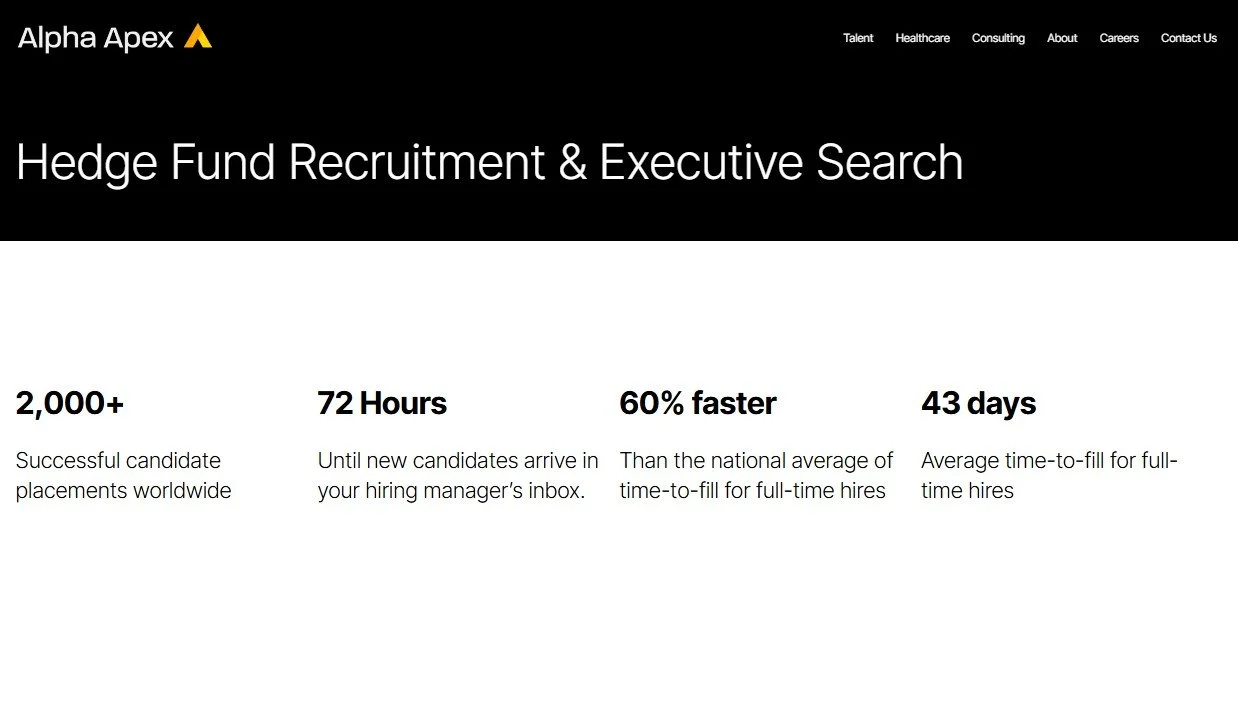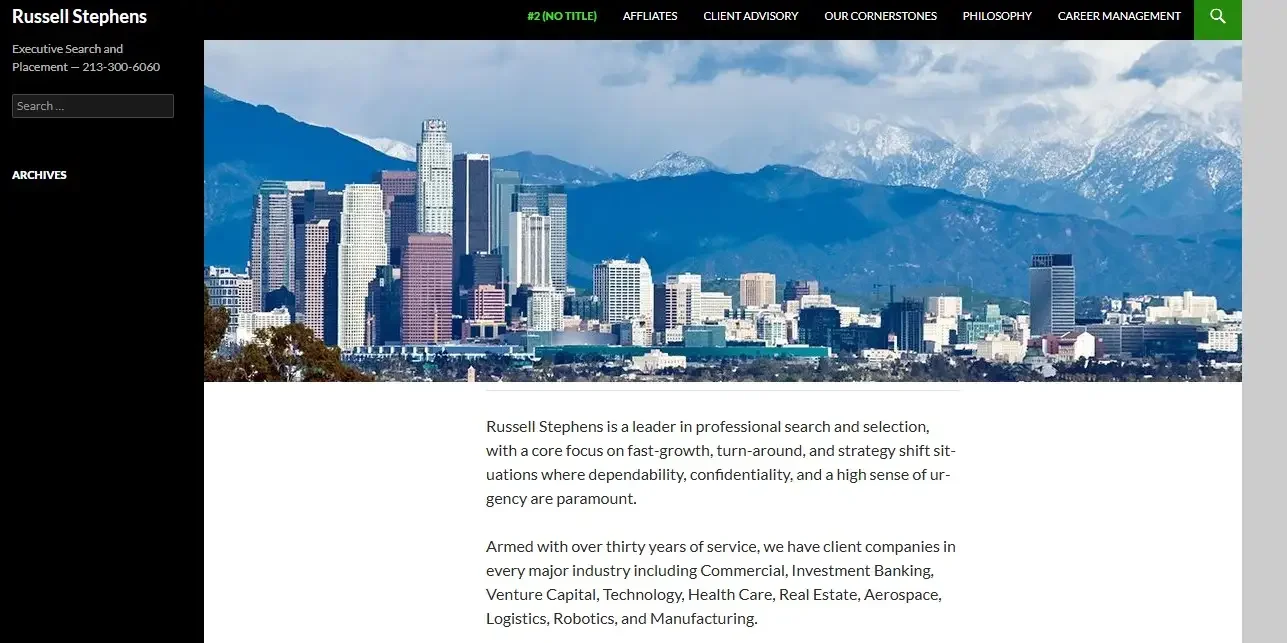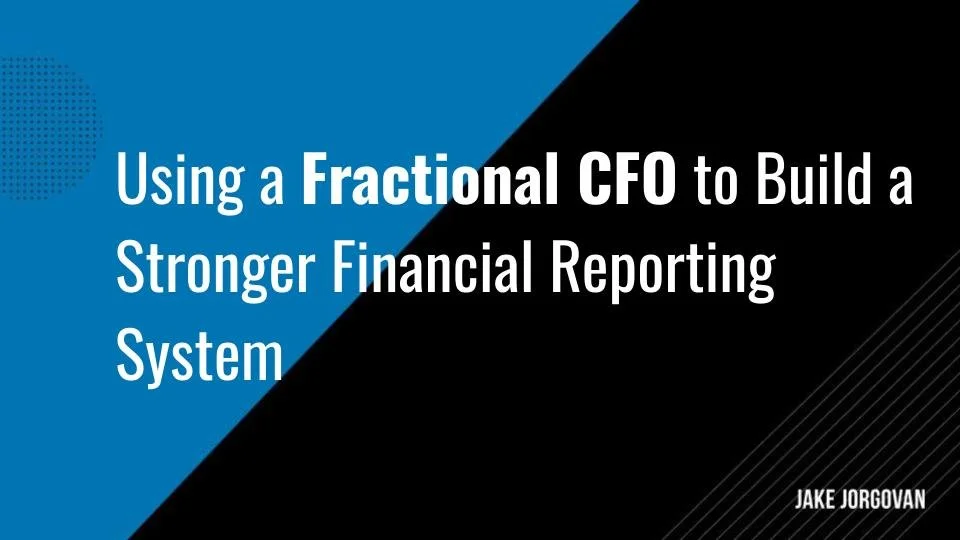July 2025: Top 12 Hedge Fund Recruiters, Headhunters, & Executive Search Firms
Updated: July 2025
In the competitive world of hedge funds, securing top-tier talent is not just an option—it's a necessity. Whether you're a burgeoning fund in search of visionary leadership or an established player aiming to strengthen your team, the role of specialized recruiters, headhunters, and executive search firms cannot be overstated. These entities are the bridge between exceptional talent and the firms that require their expertise.
The Value of Specialized Recruitment in Hedge Funds
The world of hedge funds is both dynamic and demanding, requiring a unique blend of skills, experience, and adaptability from its professionals. Hedge fund recruiters and executive search firms specialize in identifying and attracting individuals who not only possess the necessary technical skills but also fit the culture and vision of their clients. These recruiters leverage their extensive networks, industry knowledge, and deep understanding of hedge fund operations to connect top talent with the right opportunities, thereby enhancing the strategic capabilities of hedge funds.
Furthermore, the importance of executive search firms extends beyond mere talent acquisition. They provide strategic consulting services, including succession planning, compensation advisory, and leadership development, ensuring that hedge funds are well-equipped to navigate future challenges. By aligning the recruitment strategy with the hedge fund's long-term objectives, these firms contribute significantly to the fund's sustainability and success.
Choosing the Right Hedge Fund Recruitment Partner
Selecting the right recruitment partner is a critical decision for any hedge fund looking to enhance its team. The ideal recruiter or executive search firm should have a proven track record within the hedge fund industry, demonstrating a deep understanding of the market, regulatory environment, and the specific challenges faced by hedge funds. It's essential to choose a partner that not only excels in talent acquisition but also aligns with your fund's culture and values, ensuring a seamless integration of new hires into your organization.
In addition, hedge funds should consider the recruiter's approach to candidate assessment and selection. A comprehensive evaluation process, including behavioral interviews, technical assessments, and thorough reference checks, is vital to ensuring that candidates not only have the right skills but also possess the character and drive to thrive in a high-pressure environment. By carefully selecting a recruitment partner that prioritizes a holistic approach to talent acquisition, hedge funds can significantly enhance their chances of attracting and retaining exceptional professionals who will contribute to their long-term success.
TL;DR Top 6 Hedge Fund Recruiters, Headhunters, & Executive Search Firms
Alpha Apex Group: Alpha Apex Group, a leading recruiter for the hedge fund industry, connects premier funds with exceptional talent, ensuring a match in skills, investment philosophy, and culture for superior investment management.
Selby Jennings: Is recognized as a premier hedge fund recruiting firm, offering unparalleled services to the hedge fund sector.
The Princeton Group: A pioneering recruitment firm, particularly in the fields of Financial and Information Technology.
Glocap: Is a distinguished recruitment and staffing agency that excels in connecting high-caliber professionals with world-class organizations.
Russell Stephens LLC: Emerges as a distinguished leader in professional search and selection, focusing on scenarios requiring rapid growth, turn-around, and strategic shifts, where reliability, confidentiality, and urgency are critical.
Dynamics Search Partners (DSP): Opting for a firm that not only excels in recruiting the best talent but also offers a personalized approach to career management for candidates.
Alpha Apex Group, Leaders in Hedge Fund Recruitment
Alpha Apex Group has solidified its reputation as a leading recruiter for the hedge fund industry, adept at connecting premier hedge funds with exceptional talent capable of navigating the complex and dynamic world of investment management. Their profound understanding of the hedge fund sector, combined with a strategic approach to recruitment, allows them to meet the nuanced needs of their clients, from portfolio managers to quantitative analysts, ensuring that each placement is not only a match in skills but also in investment philosophy and culture.
With a commitment to excellence and a deep network of professionals within the financial sector, Alpha Apex Group excels in identifying individuals who possess a unique blend of analytical prowess, market insight, and the innovative thinking required to excel in the fast-paced hedge fund environment. Their comprehensive recruitment process is designed to uncover candidates who can contribute to the development of sophisticated investment strategies and the achievement of superior returns.
Key Services:
Specialized recruitment for hedge fund professionals, including portfolio managers, traders, and quantitative analysts
Executive search services for senior-level positions and leadership roles within hedge funds
Talent sourcing for risk management, compliance, and operational roles specific to the hedge fund industry
Strategic advisory on team composition and talent retention within the competitive hedge fund market
Customized training and development pathways for hedge fund talent
Why work with Alpha Apex Group?
Choosing Alpha Apex Group as your hedge fund recruitment partner means gaining access to a team that not only understands the technical and strategic demands of the industry but also values the importance of alignment between a fund’s goals and its employees' expertise and vision. Their meticulous approach to recruitment ensures that hedge funds are equipped with professionals who are not only capable of generating exceptional returns but also committed to the long-term success and integrity of the investment firm. With Alpha Apex Group, hedge funds can confidently navigate the talent market, securing the human capital necessary to thrive in the competitive world of investment management.
2. Selby Jennings
Selby Jennings is recognized as a premier hedge fund recruiting firm, offering unparalleled services to the hedge fund sector. Their team has a profound understanding of hedge fund strategies, regulations, and the competitive landscape, ensuring they find candidates who excel in this demanding field.
They distinguish themselves through a global talent network, allowing access to a diverse pool of candidates, and providing customized recruitment solutions tailored to each hedge fund's unique needs. Their rigorous candidate screening process ensures that only the most suitable individuals are presented to their clients, aiming for seamless integration into the team and significant enhancement of the fund's performance.
Key Services:
Deep Hedge Fund Industry Knowledge
Global Talent Network
Customized Recruitment Solutions
Rigorous Candidate Screening
Long-term Partnership Focus
Why work with Selby Jennings?
Selby Jennings should be your go-to recruitment firm for securing top talent in the hedge fund sector due to their deep industry knowledge, extensive global network, and commitment to delivering excellence. They are dedicated to building lasting partnerships with their clients, supporting ongoing talent needs as hedge funds evolve.
3. The Princeton Group
The Princeton Group stands out as a pioneering recruitment firm, particularly in the fields of Financial and Information Technology. With a focus on connecting today's talent with the technology of tomorrow, the firm demonstrates a strong commitment to integrity, professionalism, and value for all stakeholders involved.
They have honed a precise approach to recruitment, emphasizing long-term relationships with both clients and candidates to ensure the perfect match. Their expertise spans critical areas such as infrastructure, applications, systems development, and financial technology, enabling them to address the intricate needs of various business units.
Key Services:
Technical and hands-on screening processes across a wide range of technologies (Cloud Development, DevOps, Web Development, C#, Java, etc.).
Professional guidance for candidates, assisting them in finding the right career paths.
Building enduring, mutually beneficial relationships between clients and candidates.
Why work with The Princeton Group?
The Princeton Group's seasoned experience, coupled with a unique approach to recruitment, positions them as a premier choice for both companies and professionals seeking to navigate the complexities of the IT and financial sectors. Their dedication to creating lasting connections based on a deep understanding of individual aspirations and business needs ensures consistent delivery of excellence.
4. Glocap
Glocap is a distinguished recruitment and staffing agency that excels in connecting high-caliber professionals with world-class organizations. They are known for their strategic approach to solving complex human capital questions and for their in-depth industry and functional knowledge. Glocap's services include executive search and recruitment, temporary staffing, diversity, equity & inclusion consulting, and compensation & benefits advice. They pride themselves on their ability to provide insightful advice, drawing from their extensive experience and deep reservoir of market intelligence.
Key Services:
Executive Search & Recruitment: Long-established service leveraging a vast database and deep insights into candidates across various industries.
Temporary Staffing: High-touch screening for temporary positions, ensuring quick and effective placement.
Diversity, Equity & Inclusion: Advisory services to help companies excel in DEI initiatives for greater profitability and investor satisfaction.
Compensation & Benefits: Consultation on creating a holistic employee experience through optimal compensation, benefits, and organizational culture.
Why work with Glocap?
Glocap stands out for its insider expertise, as its consultants come from the very industries and roles they now recruit for, providing unmatched insights into what makes a successful candidate. Their approach is highly specialized and personalized, focusing on partnership, experience, and creativity in their search process. With a history dating back to 1997, Glocap has acted as a trusted advisor to clients on all aspects of human capital strategy, backed by a leadership team committed to excellence in client and candidate service.
5. Russell Stephens LLC
Russell Stephens LLC emerges as a distinguished leader in professional search and selection, focusing on scenarios requiring rapid growth, turn-around, and strategic shifts, where reliability, confidentiality, and urgency are critical. With over thirty years of experience, they've provided exceptional service across a broad spectrum of industries, including Commercial and Investment Banking, Venture Capital, Technology, Healthcare, Real Estate, Aerospace, and Manufacturing.
Their unique selling point is their ability to deliver speedy and high-quality outcomes, outpacing competitors significantly in terms of "time to complete" search assignments. Russell Stephens is noted for its integrity, boasting a comprehensive sixteen-point search process and a vast database of professionals, which enables them to quickly and confidentially attract the best candidates.
Key Services:
Professional search and selection
In-depth candidate evaluation and selection process
Comprehensive due diligence for a clear understanding of candidates
Expertly qualified technical and management specialist services
Personalized service tailored to client and candidate needs
Career management and consultation services
Why work with Russell Stephens LLC?
Choosing Russell Stephens LLC means opting for a firm that not only excels in recruiting the best talent but also offers a personalized approach to career management for candidates. Their dedication to making informed, professional selections, coupled with their comprehensive service offerings, makes them a standout choice for organizations and professionals aiming for excellence in their respective fields.
6. Dynamics Search Partners (DSP)
Dynamics Search Partners (DSP) has established itself as a leading executive search firm in the alternative investment industry, particularly focusing on the hedge fund and private equity sectors. For over a decade, DSP has excelled in pairing renowned industry talents with prestigious firms, reflecting a significant emphasis on diversity and inclusion. This approach has led to a third of their successful placements coming from diverse backgrounds in recent years, showcasing their commitment to broadening the finance industry's horizons.
Key Services:
Executive search and placement across various levels and geographies within the alternative investment sector.
Career management and guidance for candidates, ensuring trust, honesty, and commitment throughout the recruitment process.
Compensation insights and trends across the industry, offering valuable data to both candidates and clients.
Why work with Dynamics Search Partners?
DSP differentiates itself through its unwavering commitment to building enduring relationships with both clients and candidates. Their approach goes beyond mere recruitment; they aim to be a lifelong career partner to their candidates and a strategic advisor to their clients. Their vast network, deep industry insights, and dedication to diversity and excellence make them a preferred partner for top-tier firms and talents within the alternative investment industry.
7. Coleman Lew Canny Bowen
Coleman Lew Canny Bowen is an executive search firm that specializes in identifying, recruiting, and evaluating leaders to match them with organizational needs and further their development. The firm operates with a philosophy that emphasizes not only the requisite skills and qualifications for leadership roles but also the importance of cultural fit within an organization. Their approach is comprehensive, aiming to preserve and enhance corporate culture or even assist in its transformation.
Key Services:
A detailed process focusing on both skill set and cultural fit to find leaders who meet and exceed organizational expectations.
Assessment and development programs tailored to enhance the capabilities of organizational leaders.
Why work with Coleman Lew Canny Bowen?
The firm prides itself on long-term relationships built on trust, honesty, and commitment, serving clients across various sectors with a broad and extensive search experience. They have a rich history, merging the expertise of two respected firms to provide exceptional service. Their global network enables them to recruit outstanding candidates from across the world, ensuring a perfect match between executive talent and the company's needs.
8. Cameron Kennedy
Cameron Kennedy, founded in 1997 and based in London, England, has distinguished itself as an independent recruitment agency renowned for its exemplary service and dedication to quality and value. With a deep commitment to integrity, the company has become a trusted name in the staffing and recruiting industry, particularly known for its exceptional service levels, market knowledge, and a consistent track record in aligning top talent with the right roles. Over the years, Cameron Kennedy has built a strong reputation for working closely with both clients and candidates, offering personalized and innovative recruitment solutions.
The company specializes in a wide range of sectors, including financial services, accountancy and finance, information technology, compliance, risk, and operations, among others. Its consultative and tailored approach, coupled with a 'no fuss' method, has made Cameron Kennedy a preferred partner for high-growth SMEs and individuals aiming for ambitious career paths.
Key Services:
Recruitment in Accountancy & Finance
Technology Recruitment
Compliance and Risk Recruitment
Operations Recruitment
Business Development and Investment Analysis
Why work with Cameron Kennedy?
Cameron Kennedy stands out for its comprehensive understanding of both the people and the companies it works with, focusing on delivering personal and innovative recruitment solutions. Its approach prioritizes quality over quantity and individuals over numbers, ensuring that clients receive dedicated service and candidates are matched with excellent job opportunities.
9. Harrison Stone & Associates, LLC
Harrison Stone & Associates, LLC, based in New York, has carved out a reputation as a premier executive search firm, focusing on the financial services community for over 25 years. The firm prides itself on building teams that are instrumental in the growth and success of businesses. They specialize in identifying top talent and high achievers across various sectors within financial services, ensuring these teams not only build but sustain businesses over the long term.
Key Services:
Executive Search and Talent Acquisition in Financial Services and FinTech.
Recruitment for various roles including investment research analysts, portfolio managers, and C-suite positions.
FinTech recruitment, catering to startups and established firms in innovative financial technologies.
Why work with Harrison Stone & Associates?
Choosing Harrison Stone means partnering with a firm that values long-term relationships and provides customized search services. Their approach is consultative and collaborative, focusing on personal attention and proven business processes to build superior teams. The firm’s specialization and industry insights enable them to match the right talent with the right roles, offering clients a distinct competitive advantage in the market.
10. Finer Recruiting
Finer Recruiting is an executive search firm established in 2022, serving the buy-side, sell-side, and Hedge Fund C-Suite sectors. With a collective industry experience of nearly 60 years, the firm is distinguished by its deep insights, an extensive network of relationships, and comprehensive expertise across the nuances of the industry. Prioritizing clients' needs, Finer Recruiting ensures that organizations are matched with the right talent, fostering remarkable outcomes. The firm is unique in that its partners have significant hands-on experience in their respective fields, making them highly aware of both employer needs and the traits of successful employees.
Key Services:
Executive search for buy-side, sell-side, and Hedge Fund C-Suite
White glove service with extensive connections to experienced professionals
Specialized recruitment in various areas including Equity Long/Short, Fixed Income/Macro, and more for the buy-side
Investment banking, institutional brokerages, and capital markets recruitment for the sell-side
Recruitment for key positions within Hedge Fund C-Suites, such as COO, CFO, and more
Why work with Finer Recruiting?
The firm's unparalleled expertise and unique approach to executive search stem from the founders' extensive backgrounds in their fields. Brett Finer and Todd Trimmer bring over two decades of experience each, in buy-side and sales trading respectively. Their firsthand experience and leadership roles in the industry equip Finer Recruiting with a profound understanding of what makes a successful employer-employee match in the highly specialized fields of finance and trading.
11. Risk Talent Associates
Risk Talent Associates is a premier executive search firm dedicated to recruiting in the areas of risk management, compliance, and cybersecurity. With over 20 years of experience, the company has built a notable reputation for connecting organizations with top-notch professionals in these critical fields. Their expertise spans various industries, including finance, healthcare, energy, asset management, and global corporations, ensuring a comprehensive approach to executive search.
Key Services:
Recruitment for risk management, regulatory compliance, and cybersecurity roles
Executive search services tailored to meet complex risk management needs
Access to a vast database of over 30,000 candidates
Specialized in filling positions like Chief Risk Officer, Risk Management Director, and Global Head of Model Governance among others
Why work with Risk Talent Associates?
Risk Talent Associates stands out for its deep industry knowledge, extensive network, and commitment to finding the perfect match for both organizations and candidates. They offer a robust selection of experienced professionals across major markets, backed by a track record of successful placements in leading names across financial services, healthcare, energy, and more. Their approach is detailed and personalized, focusing on understanding the unique needs and culture of each client to ensure the recruitment of highly effective risk management teams.
12. Spencer Stuart
Spencer Stuart, established in 1956 and headquartered in Chicago, Illinois, is a global leader in executive search and leadership consulting. With over 70 offices across more than 30 countries, the firm specializes in senior-level executive search, board recruitment, CEO succession planning, and leadership assessment services. Their clientele spans various sectors, including major multinationals, emerging companies, and nonprofit organizations. Spencer Stuart is renowned for its deep expertise in helping organizations navigate complex leadership decisions that significantly impact performance and culture.
Key Services:
Executive Search
Board & CEO Advisory
CEO Succession Planning
Executive Assessment
Leadership Consulting
HR & Talent Advisory
Digital Transformation
Sustainability Consulting
Why work with Spencer Stuart?
With a legacy spanning over six decades, Spencer Stuart combines extensive industry knowledge with a global presence, offering tailored leadership solutions that align with clients' strategic objectives. Their commitment to confidentiality, rigorous assessment methodologies, and a collaborative approach ensures the identification and development of leaders who drive meaningful impact.
Key Factors to Consider When Choosing a Hedge Fund Recruiter
Reputation and Track Record: Assess the success rate and reputation of the recruiter in placing candidates in hedge fund roles. A strong track record indicates their ability to understand both the candidates' and hedge funds' needs.
Industry Knowledge and Expertise: The recruiter should have a deep understanding of the hedge fund industry, including its various strategies, roles, and regulatory environment.
Network and Relationships: An extensive network within the hedge fund community can provide access to a wider range of opportunities and insider insights into the firms.
Personalized Service and Support: Look for recruiters who offer personalized advice, resume feedback, and interview preparation to improve your candidacy.
Ethical Standards and Confidentiality: Ensure the recruiter operates with high ethical standards, maintaining confidentiality and integrity throughout the recruitment process.
What Hedge Fund Recruiter Will You Choose?
Choosing the right hedge fund recruiter can significantly impact your career trajectory in the competitive hedge fund space. It's not just about landing a job; it's about finding a role that aligns with your career goals, skills, and values. The best recruiter for you will understand your unique profile and career aspirations, guiding you towards opportunities that offer both growth and fulfillment. As you navigate through the list of top recruiters, keep the key factors in mind to ensure a partnership that will pave the way to your success in the hedge fund industry.



























